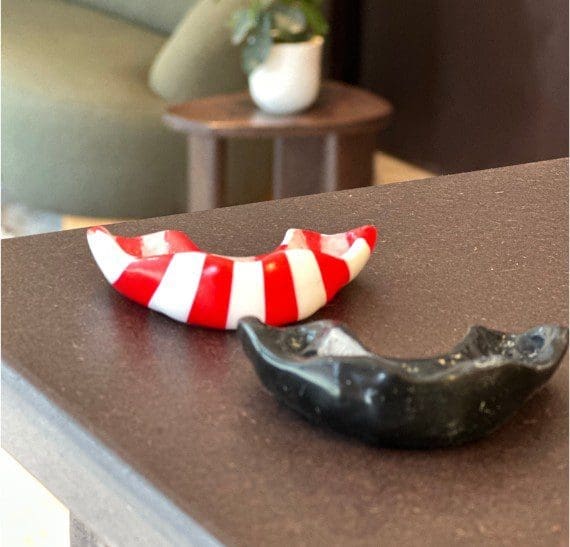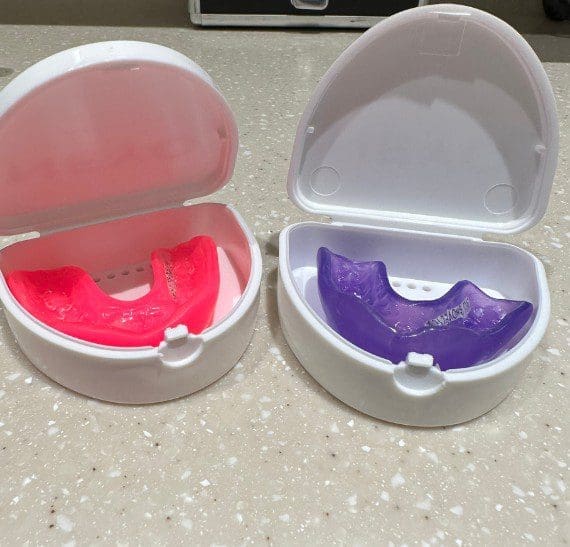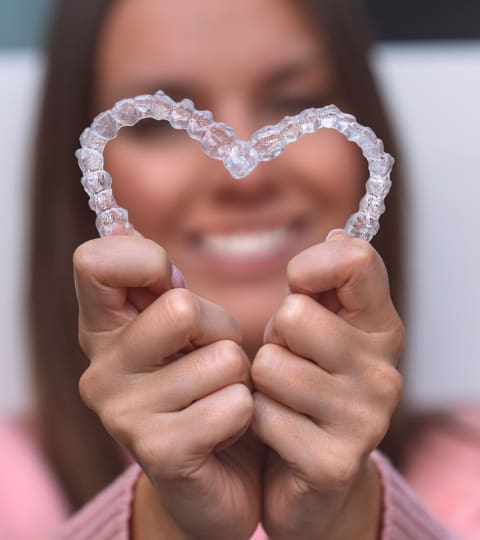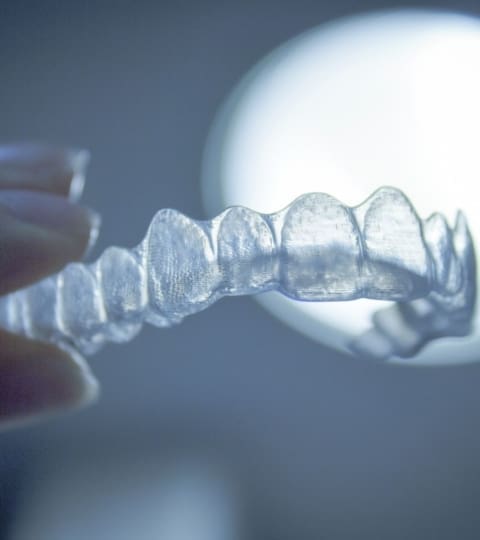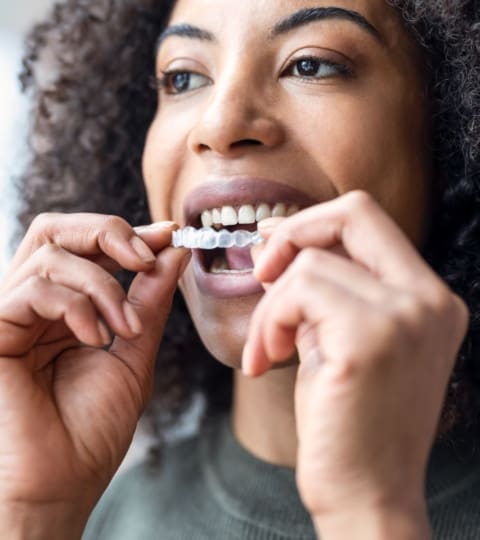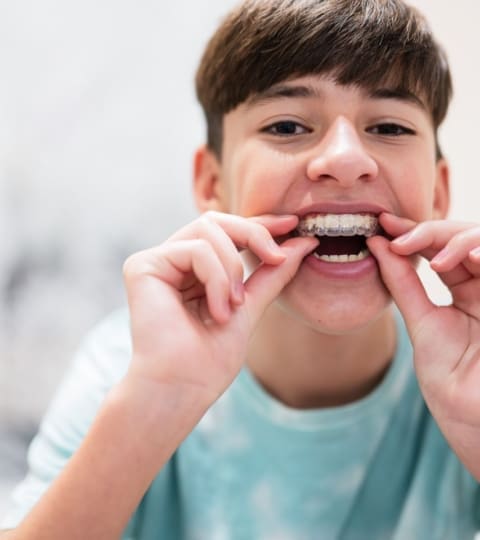How are mouth guards made?
The process is similar to taking impressions for removable retainers. Traditionally, a dental impression is taken of the upper teeth using an alginate material. Using this impression, a plaster mould is then created for the mouth guard to be formed on to. Modern clinics like Neyo Dental Specialists adopt an impression free approach and instead use a 3D intraoral scanner to produce a digital model of the teeth. Resin models can then be 3D printed on which the mouth guard will be made. Dental grade thermal polymer is heated and pressed into the plaster or resin model to form the bespoke mouth guard.
Should mouth guards hurt?
A mouth guard shouldn’t hurt to wear, but they can take time to get used to and may feel odd in your mouth at first. Your mouth guard shouldn’t feel sharp or excessively bulky and should sit so it covers the upper gums to just below the lips. If your mouth guard is causing pain, soreness, or gagging, it will need to be adjusted.
Why do mouth guards only cover upper teeth?
Most mouth guards are only designed to cover the upper teeth as these tend to stick out slightly more than the bottom teeth, and are therefore at more risk of impact or injury. However, some conditions may require a mouth guard for the lower teeth.
Types of Mouth Guards
There are three common types of mouth guards:
1 – Mouth guards for sports. These protect teeth and gums from high-impact injuries. Sports mouth guards are usually needed for activities including hockey, rugby, boxing, martial arts, and lacrosse.
2 – Mouth guards for teeth grinding: These can help to protect teeth from the effects of teeth clenching and grinding. They are most commonly worn at night and are also known as night guards.
3 – Mouth guards for sleep conditions: Individuals who suffer from sleep conditions such as snoring and sleep apnea may use mouth guards to help reposition their lower jaw during sleep to allow them to breathe more easily.
Mouth guard benefits and risks
Wearing a mouth guard whilst playing contact sports, or during activities that may result in injury, can help avoid:
- Injuries to your teeth, gums, and inner mouth
- Teeth being knocked out
- Chipped teeth
There are few risks of wearing mouth guards for contact activities, however, ill-fitting mouth guards may cause:
- Jaw soreness
- Toothache and soreness
- Gum soreness and bleeding
Custom-made mouth guards tend to be more comfortable as they are made specifically for your mouth.



